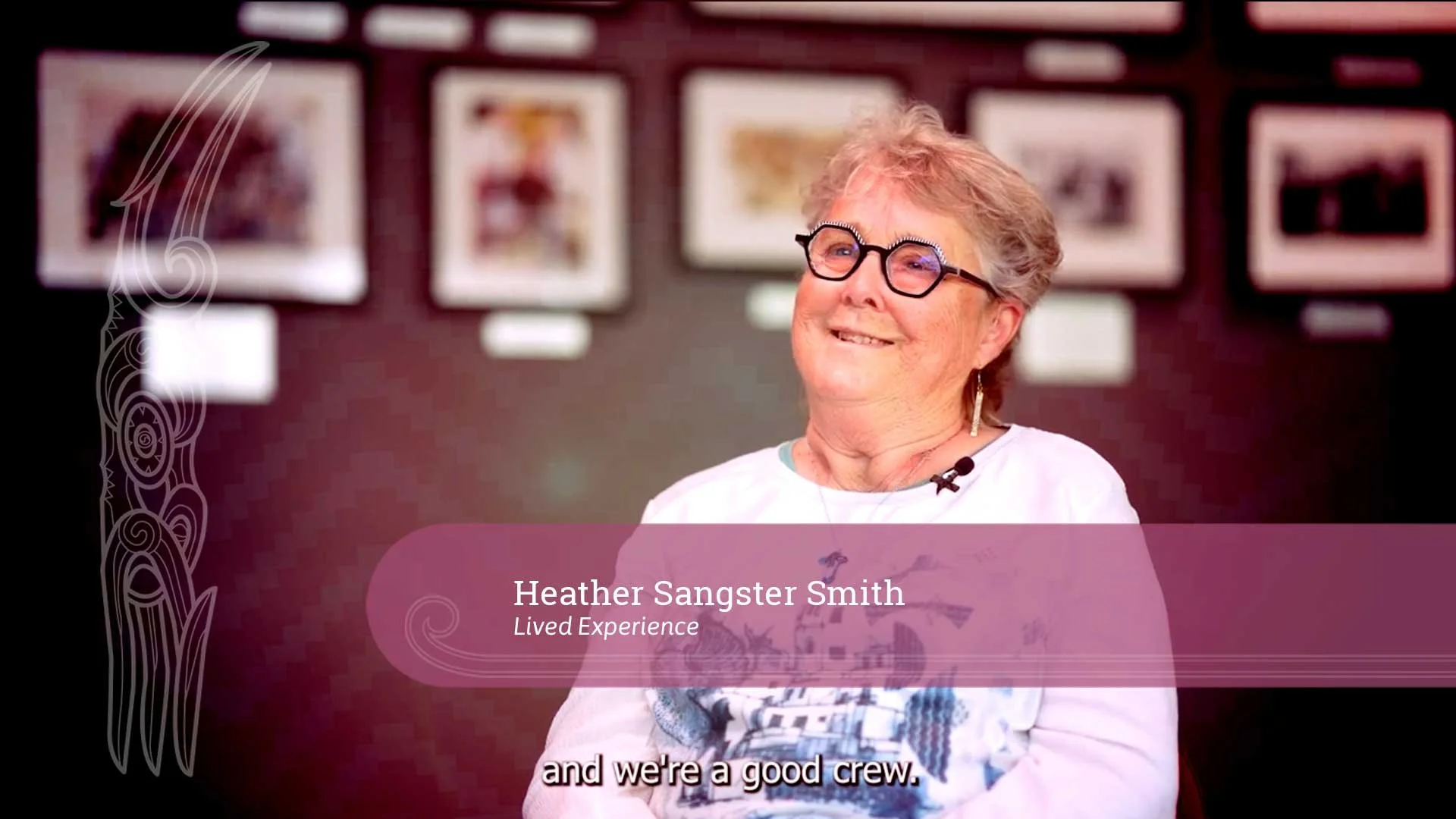
Taha Whānau is about building relationships and connecting with people who support our hauora so we can thrive in all parts of our wellbeing.
People need people.
Whānau extends beyond immediate family to include our partners, extended family, close friends, or any community where we connect.
When we consider support, what support looks like for us and what we need, differs from person to person. We all need to feel a sense of connectedness and belonging – this is one of the key elements of being human.
Topics on this page:
The role of whānau in support as we age
Whānau can play an important role in supporting us when we need extra support.
Some of us have an abundance of whānau support, some have next to no whānau support, and some of us choose not to involve whānau. The most important thing to remember is we don’t have to do it alone, support is available.
What can whānau help with?
Emotional support and understanding:
When dealing with some of the challenges of living with HIV, our whānau can offer encouragement, comfort, and a sense of belonging, friendship and companionship, helping us feel less isolated and more supported.Advocacy:
If we don’t feel strong enough, or if we are not in a position where we are able to advocate for ourselves, whānau can be our voice. This might involve communicating how we want to be cared for.
Whānau can help us develop an Advanced Care Plan.Practical Support:
Whānau can assist with transport to medical appointments, picking up prescriptions, making a meal and helping out at home. Whānau may also be able to assist us in making appointments for other services we need.
Dealing with medications,, healthcare, and the new challenges of ageing can feel overwhelming, but we don't have to face it alone.
Getting help
Whether we need temporary assistance or are considering moving to a care facility, worries about fitting in and being accepted are natural, especially if our culture, identity, or some of our health conditions like HIV are on our minds.
All health and support services are expected to embrace diversity and treat everyone with dignity and respect so we can all feel welcome and understood. While it's normal to have concerns, you have rights and there is support available.
Home-based support services
If we are at home and finding it hard to do things independently, we can get home-based help. Kaimahi (Support Workers) can visit to help with things like cleaning, cooking and personal care like showering and toileting etc so we can stay in our home and remain independent. We can also share the Kaimahi (Support Workers) section of the website as an educational tool.
Home-based support process:
To receive home-based support services, we need to be referred for a Needs Assessment. We can refer ourselves or have whānau or our doctor refer us.
A Needs Assessment Coordinator will assess our abilities, needs, resources, and current support and then identify what suitable services they can arrange for us, and how often.
The Needs Assessor will have health-related questions. Remember, we have rights when it comes to sharing our health information and do not need to say anything about our HIV unless we choose to or need special support with our HIV. We can ask for help from trusted whānau to make some enquiries on our behalf too.
Find more about the Needs Assessment Process and what organisations can do a needs assessment.
Having someone we don’t know come into our space can be confronting. We can ask for caregivers who we would feel more comfortable with.
Residential-based support services
When we can't live alone anymore, even with help from whanau or Kaimahi, we might need to move to a place where we can be taken care of.
Sometimes, we might only need help for a short time and there is help for that too. Find out about the criteria for entry and subsidies for Long-term residential care.
Remember, we can ask for support from trusted whānau or peer support groups to make enquiries on our behalf if it’s a bit overwhelming.
The different types of residential care facilities include:
Rest home care
Continuing care (hospital-level care)
Dementia care
Specialised hospital care (hospice care)
Co-housing, Papakāinga and Kaumātua Housing
If we can no longer live independently but still want to be part of the community, co-housing and papakāinga can let us live close to others and share things like kitchens or gardens. This can help us feel more connected and safer knowing there are others nearby.
Co-housing
Co-housing means living in a group of homes or units where we share stuff and support each other. We can chat with other people in our close communities about co-housing opportunities or if there is interest in setting one up.
Papakāinga and Kaumātua Housing
Papakāinga is a cluster of small homes occupied by Māori of all ages who whakapapa to the whenua.
Kaumātua housing is usually built close to the marae so kaumātua can still support the activities and can choose to be involved. See the Māori Housing Network for more information and advice.
Other social support services
Organisations like Age Concern provide social events and offer a visiting service. The visiting service volunteers are police-checked and trained and can spend about an hour each week sharing conversations and activities. Matches are made carefully based on personality, cultural needs, shared interests and where we live.
Eldernet also has information on the ageing and support services.
























